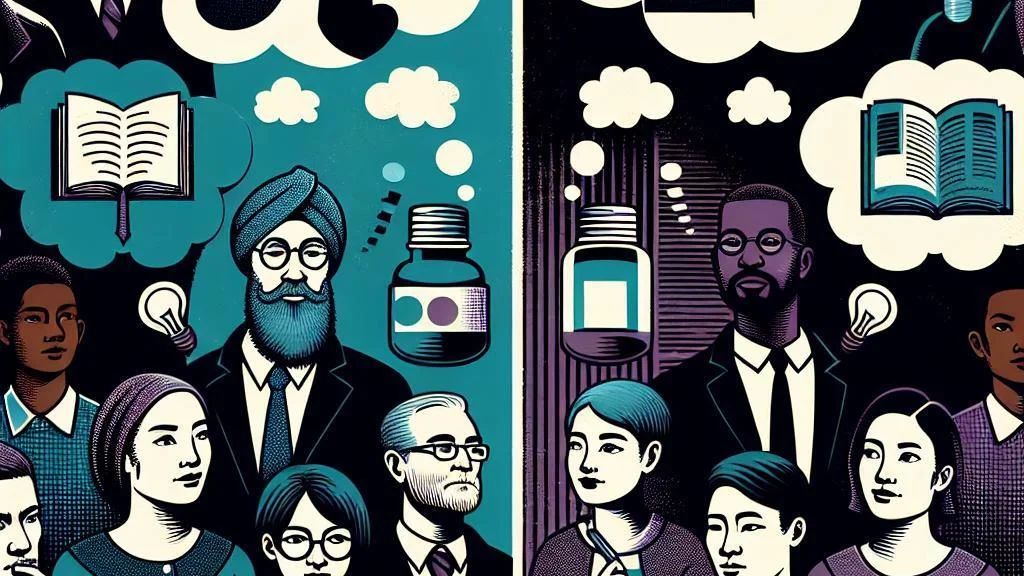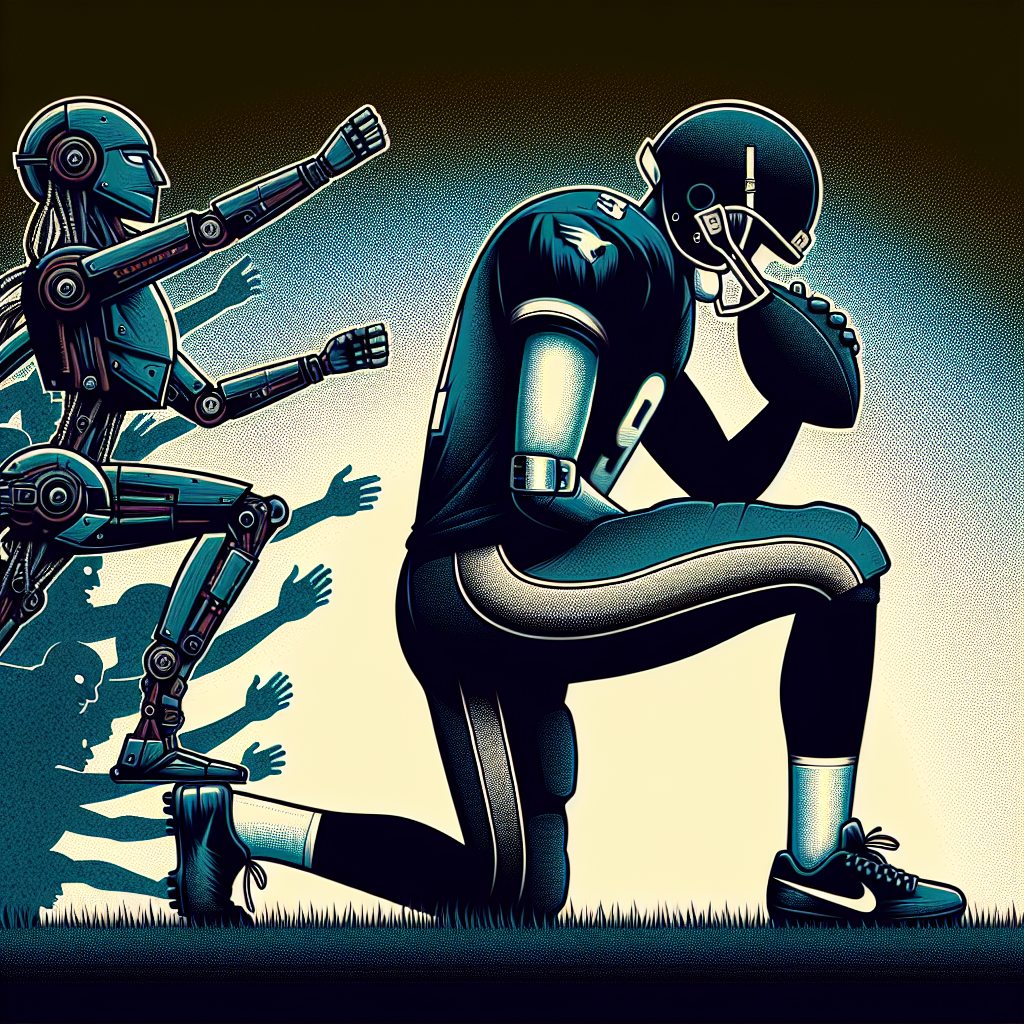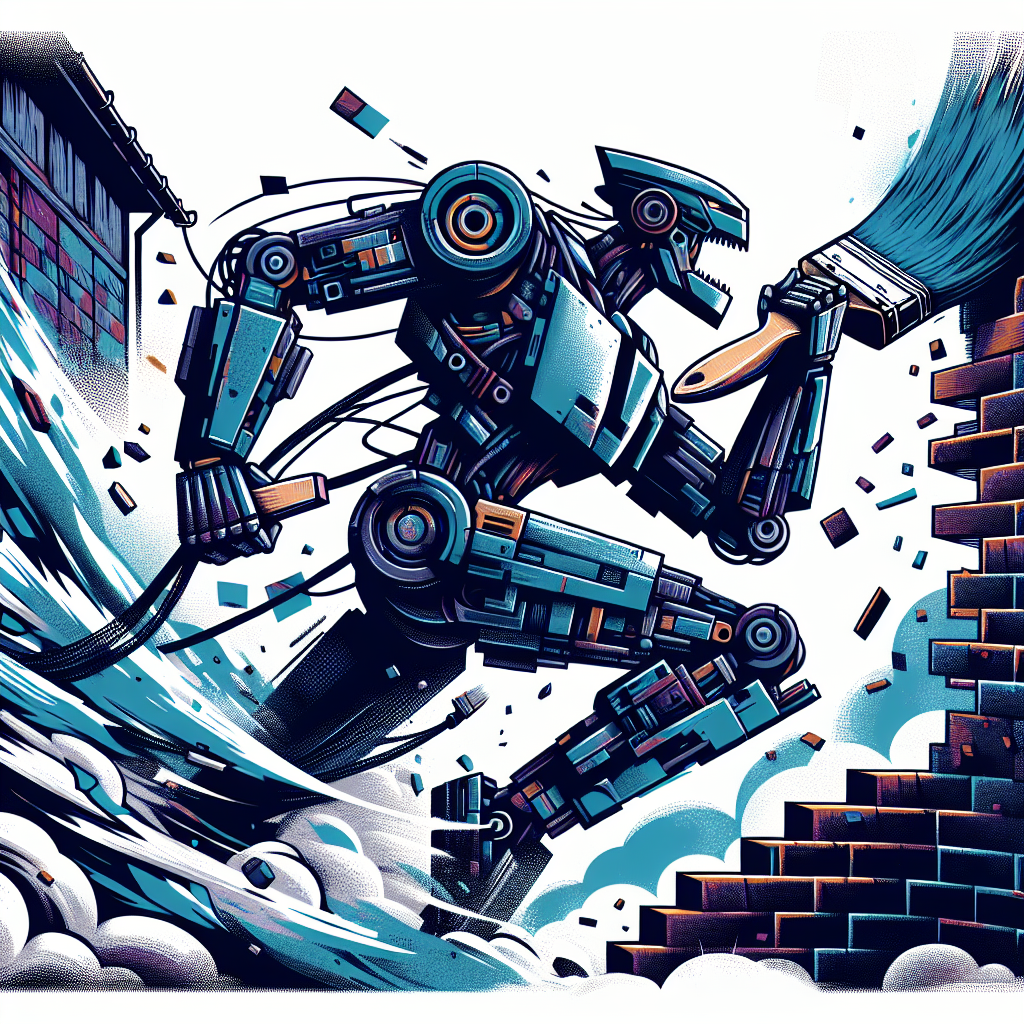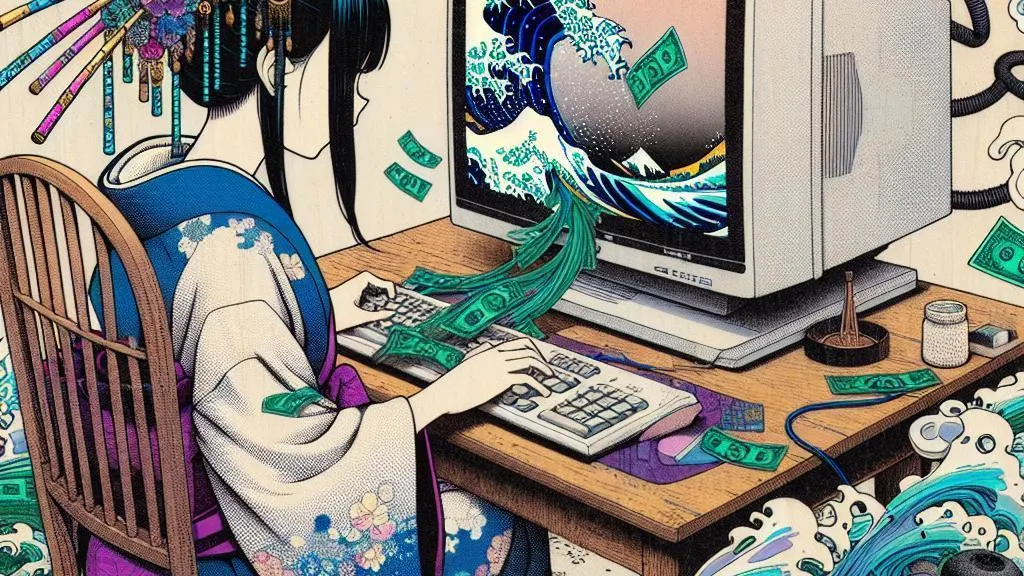Should AI Have Human Rights?
Let me paint you a picture: an era where thinking machines roam among us. Sounds …

If you've been following my TikTok, you've probably heard me bang on about AI and its game-changing potential. Recently, I came across an article about Colin Kaepernick raising a cool $4 million for his AI startup. Now, this isn't just another tech news story – it hit me right in the feels because it aligns perfectly with what I've been preaching about AI and creative enablement.
So, here's the deal: AI is flipping the script on how we approach creativity. Think about it—not too long ago, if you wanted to be taken seriously on platforms like YouTube, you needed to bring your A-game in terms of production value. That meant either having mad skills, tons of time, or deep pockets. Want to write a comic book? Better be a decent artist. Fancy making a video? I hope you know your way around editing software.
But here's the kicker – there are loads of people out there with amazing stories to tell, but they're held back because they can't draw to save their lives or wouldn't know a video transition if it hit them in the face. This is where AI swoops in like a superhero.
Imagine this: you've got a killer story in your head, but you can't draw stick figures. No worries. With AI, you can narrate your story and boom – it transcribes it, turns it into a script, throws in some character descriptions, and even visualises scenes. It's like having a whole production team at your fingertips.
This is huge, folks. We're discussing democratising content creation in a way that's never been done before. It's not about replacing human creativity – it's about giving people the tools to express their creativity in ways they never could.

Let's circle back to Kaepernick's AI company, Lumi. This isn't just another tech startup—it's a prime example of what I'm talking about. Lumi is all about creating tools that can publish AI-generated content. Why is this a big deal? It bypasses the traditional gatekeepers.
Think about it this way: you have a brilliant idea for a comic book series but can't draw to save your life. In the past, you'd be stuck. But with AI tools like what Lumi's working on, you could outline your vision, and the AI would generate the artwork and help structure the narrative. Suddenly, your story is in the world, ready for people to enjoy.
And it's not just about comics. This principle applies to novels, short stories, and even multimedia projects. It's about giving people the power to bring their ideas to life, regardless of their technical skills.
Now, let me get a bit personal here. For years, I've dreamed of having a team of developers at my beck and call, ready to bring my ideas to life. But let's face it – unless you're rolling in dough or have some serious connections, that's unrealistic.
Enter ChatGPT. This AI tool has been a game-changer for me. I've got a decent grasp of tech but couldn't code my way out of a paper bag. But with ChatGPT, I've managed to create many tools—Chrome plugins, mobile apps, you name it. In the last 24 months alone, I've built around 20 different projects.
How? I lean on AI to guide me through the coding process, help me set up servers, and even deploy my creations. It's been a wild ride, and I've learned so much. I've gone from being a complete novice to someone who can hold their own in tech conversations.
But here's the real kicker—all those ideas that used to rattle around in my brain are becoming real, tangible things. And it's all thanks to AI giving me the boost I needed.
Now, I know there's a lot of chatter about how these generative AI models are trained and whether it's all above board. And don't get me wrong—that's an important conversation. But let's not lose sight of the incredible potential these tools have.
Take Meta, for example. They're open-sourcing their large language models, which is a fancy way of saying they're making high-quality generative AI accessible to more people. This is huge, folks. It means that creative tools that were once the preserve of big tech companies are now within reach of the average Joe.
When I think back to 10 or 15 years ago, I can't help but wonder how different things could have been if these tools had been around. Looking forward, I'm genuinely excited about a future where people can create freely without being held back by technical barriers.

Let's break this down a bit more. AI isn't just about automating tasks or crunching numbers. Regarding creativity, AI is like having a super-smart assistant who's an expert in all the technical stuff you're not.
Take writing, for example. You might have a killer plot for a novel but struggle with dialogue or descriptive passages. An AI writing assistant can help you flesh out your ideas, suggest plot twists, or even nail that tricky character development.
Or consider music production. You don't need to be a multi-instrumentalist anymore. AI can help you compose melodies, suggest chord progressions, or even create entire backing tracks based on your ideas.
Let's not forget about the visual arts. AI image-generation tools are getting scarily good. They can help artists conceptualise ideas, create backgrounds, or even generate artwork based on text descriptions.
The key here is that AI isn't replacing human creativity—it's enhancing it. It's giving people the power to bring their visions to life, even if they lack all the technical skills traditionally required.
This is where things get exciting. AI is levelling the playing field in a big way. It's no longer just the tech-savvy or the professionally trained who can create high-quality content.
Think about indie game development. In the past, you needed a team with diverse skills—programmers, artists, sound designers, etc. Now, with AI tools, a passionate creator can potentially handle all these aspects. They can use AI to generate game assets, create music, and even help with coding.
Or consider podcasting. AI can help with script writing, audio cleanup, and even generating intro music. Anyone with a story can now produce a professional-sounding podcast.
This democratization of creation will lead to an explosion of diverse voices and ideas. We'll see stories and creations from people who might never have had the chance to share their vision before.
I'd be remiss if I didn't discuss some ethical considerations here. As AI becomes more integrated into the creative process, we need to have serious conversations about copyright, attribution, and the nature of creativity itself.
For instance, who owns the copyright if an AI helps you write a novel? If you use AI-generated art in your project, do you need to credit the AI? These are tricky questions without easy answers.
There's also the concern about AI potentially homogenising creative output. If everyone's using the same AI tools, is there a risk of everything starting to look or sound the same?
These are important issues that we as a society need to grapple with. However, I believe the potential benefits of AI in creative enablement far outweigh these concerns.
As we wrap this up, I want to emphasise that AI isn't just another tool in the creative toolkit – it's a paradigm shift. It's opening up possibilities we could only dream of a few years ago.
For aspiring creators, my advice is this: embrace AI. Learn how to use these tools to enhance your creativity, not replace it. Use AI to handle the technical aspects you struggle with so you can focus on what matters – your unique vision and ideas.
And your time is now for those of you who've always had that creative spark but felt held back by a lack of technical skills. AI is levelling the playing field, giving you the power to bring your ideas to life.
The future of creativity is here, and AI powers it. So what are you waiting for? Get out there and start creating!
Remember, if you want to stay updated on AI and creativity, follow me on TikTok. Trust me, you won't want to miss what's next in this AI revolution!
Some other posts you may like

Should AI Have Human Rights?
Let me paint you a picture: an era where thinking machines roam among us. Sounds …
July 30, 2024
Read More
Your Guide to Monetising AI-Generated Images
Images, created using advanced algorithms and machine learning techniques, are revolutionising how we perceive …
July 30, 2024
Read More